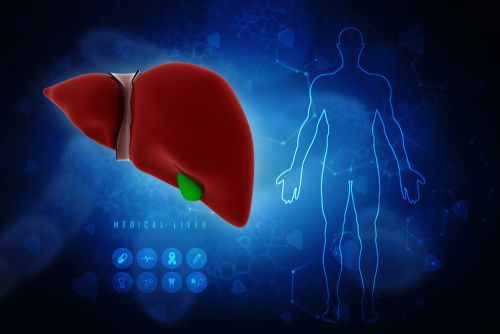GLVAP Genes May Be Game-Changers

Scientists at the University of Southern Denmark have uncovered a groundbreaking approach to tackling one of the most common challenges in weight-loss journeys—dreaded the metabolic plateau. This frustrating phenomenon occurs when the body, in response to caloric restriction or fasting, slows down its metabolism to conserve energy.
Published in Cell Metabolism, the study focuses on the plasmalemma vesicle-associated protein that traditionally makes it harder to shed pounds over time due to the liver’s selection of energy sources. Also known as PLVAP or PV-1, the gene regulates how the liver processes carbohydrates and uses fat oxidation to force the body into “starvation mode” during food shortages.
By suppressing the PLVAP gene in mice, the Danish researchers discovered that the liver could continue burning carbohydrates and would seamlessly redirect fat storage into muscle without adverse effects. This breakthrough suggests that targeting PLVAP may provide a way to sustain calorie-burning and avoid frustrating plateaus, while creating possibilities for effective new weight-loss strategies that are more sustainable.
NOTE: The University of Southern Denmark’s PV-1 study on metabolism was initially published in the journal Cell Metabolism. The team of research scientists included Daniel Hansen, Jasmin Jensen, Christian Andersen, Peter Jakobsgaard, Jesper Havelund, Line Lauritsen, Samuel Mandacaru, Majken Siersbæk, Oliver Shackleton, Jonathan Brewer, Blagoy Blagoev, Nils Færgeman, and Kim Ravnskjær (all from SDU). Collaborators from Japan, the USA, and Finland. Danish scientists suggest that targeting the PLVAP gene could be key to overcoming common barriers by offering new hope for those with significant weight-loss goals.
How Cells Trigger Metabolic Changes
Interestingly, in this altered state of PV-1 function, fatty acids from fat tissues were rerouted to skeletal muscles instead of being absorbed by the liver. So, the Danish research provides the first real evidence as to how liver sinusoidal cells, specifically hepatic stellate cells, influence fatty acid utilization through the PLVAP gene. By preventing the body’s natural tendency to conserve energy when food intake decreases, this could pave the way for treatments to overcome plateaus.
While studies on humans are still needed, the Danish research reveals an exciting avenue for tackling weight-loss challenges like annoying weight-loss plateaus and metabolic resistance. But, by better understanding genes like PLVAP, it could open the door to innovative weight-loss strategies and novel metabolic treatments that can help individuals achieve sustainable health goals like improving insulin sensitivity and lowering blood glucose levels.
Under normal conditions, the liver shifts from burning carbohydrates to oxidizing fat when calorie intake is reduced. So, beyond how much weight you can lose, this new mechanism could enhance metabolic health by improving insulin sensitivity and lowering blood sugar levels. Moreover, innovative applications can be developed for treating chronic weight-related diseases by boosting the impact of prescription receptor agonists like MRC’s compounded weight medications.
Kickstart Your Journey for Weight Control
Prescription peptide medications, initially designed to aid in diabetes management, have emerged as an innovative and highly effective tool for weight loss. These receptor agonists work by mimicking the natural hormone, which regulates blood sugar levels and promotes feelings of fullness. By reducing hunger and slowing the stomach’s emptying process, these medications make it easier to maintain a lower calorie intake without dealing with constant food cravings.
Administered as convenient once-weekly injections, receptor agonists offer flexibility for busy lifestyles. Beyond managing weight, they also support improved metabolic health, reducing risks associated with obesity such as diabetes and other chronic conditions. These treatments have become a preferred choice for individuals seeking a balanced approach to sustained weight control and without the traditional need for highly restrictive daily dietary intake and overly-exertive gym workouts.
At the Metabolic Research Center, we go beyond simply prescribing medications. Our science-backed programs pair these groundbreaking treatments with personalized menus and one-on-one support. Visit us at the medical weight loss clinic SW Omaha - Papillion to see how our experienced team can help you achieve your goals. All it takes is a quick email or call to learn more about the MRC science-backed weight loss that are available for you. So, visit us online and don’t forget to schedule a free consultation as your first step toward wellness.
By submitting this form, you agree to receive marketing text messages from us at the number provided, including messages sent by autodialer. Consent is not a condition of any purchase. Message and data rates may apply. Message frequency varies. Reply HELP for help or STOP to cancel. View our Privacy Policy and Terms of Service.

